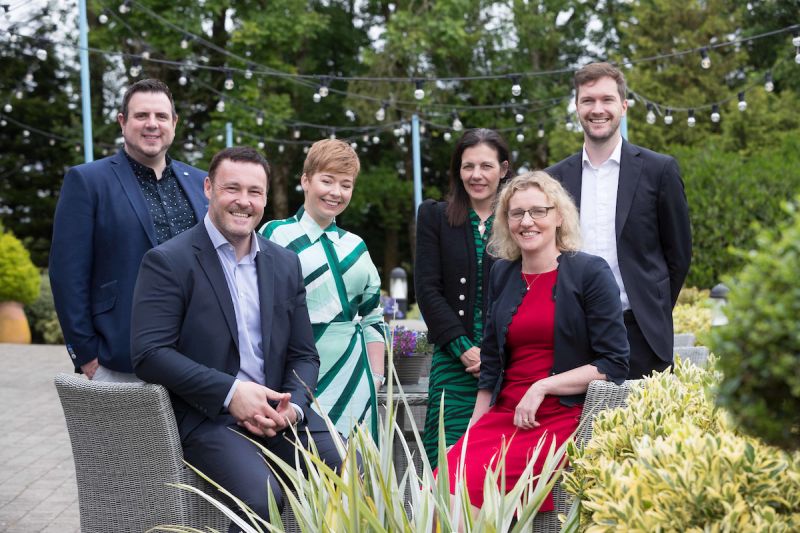
Claiming R&D tax credits requires careful attention to detail
Pictured at the R&D briefing (from left): Vic Angley, Grant Thornton; Dean Magher, Reagecon; Noelle Maguire, Stryker; Dr Fiona Gilchrist, Jaguar Land Rover; James McMahon, Grant Thornton; and Breda McCarthy, Revenue Commissioners. Photograph by Eamon Ward
With innovation the lifeblood of most companies and a high percentage of businesses in the Mid-West undertaking a significant amount of research and development, Shannon Chamber, in conjunction with Grant Thornton, hosted a breakfast briefing to advise companies on how to prepare best-in-class R&D documentation for presentation to Revenue.
Presenters at the briefing included Vic Angley, partner and James McMahon, director of tax incentives with Grant Thornton. They were joined by Breda McCarthy from the Revenue Commissioners and by Noelle Maguire, senior R&D manager, Styrker, Dr Fiona Gilchrist, R&D strategy lead, Jaguar Land Rover, and Dean Magher, regulatory compliance manager, Reagecon, each of whom are actively involved in their organisations’ research and development undertakings. Enterprise Ireland’s technical advisor, research, development and innovation, Padraig Doolan, joined by video link to outline the types of funding streams available to support in-company research and development.
Areas covered during the briefing included maintaining proper R&D records and the various tests undertaken by Revenue to assess a claim’s validity.
As explained by Mr Mc Mahon, in order to avail of an R&D tax credit, a company must first demonstrate that it satisfies two tests – a science and an accounting test.
“A company must be able to provide evidence that it is engaging in qualifying R&D activities, and it must also illustrate that it has accurately tracked and accounted for all expenditure. Maintaining relevant documents for both tests is very important and failure to keep such documentation may result in the calin being disallowed. This documentation must be maintained for a minimum of five years following the end of the year to which the claim relates,” he stated.
Given that recording R&D activities is difficult and time consuming, he advised attendees to plan their R&D activities in advance, to identify the projects that qualify for R&D claims, and to maintain progress reports for each project undertaken and to review them regularly.
“It is also important to implement a time recording system to identify the hours spent by each employee involved in a qualifying task,” he added.
He outlined the level of information required by Revenue for both the science and accounting tests: “Companies must show that their R&D involves the creation of new or improved business components that result in improved function, performance, reliability or quality of a product or process. They must prove that they have discovered new information to eliminate uncertainty regarding the capacity, method or design for developing or improving a product or process associated with successfully achieving this goal. It must be evident that proper due diligence has been undertaken by competent professionals to ensure the knowledge isn’t already available to the industry and the uncertainty hasn’t already been resolved. Details on the steps taken by the R&D team, showing the progress made and experiments carried out to demonstrate that a systematic approach was followed must also be available.
“Data recovery is very important,” he stated.
Key requirements of the accounting test include demonstrating how qualifying R&D hours are tracked and showing that salary information is accurate and matches payroll data returned to Revenue.
Companies undertaking research and development should assess their qualification for the various funding streams available from Enterprise Ireland, Local Enterprise Office or Údarás na Gaeltachta.
Such funds include the Agile Innovation Fund which supports the development of new or substantially improved products, services or processes, where the total project cost is less than €300,000; IP Strategy Support, which incentivises companies to develop an IP strategy, focused on capturing, managing and exploiting their R&D results to greater effect; Agile Innovation Fund: BI, which supports an idea for a new Process; the RD&I Fund, which supports the development of new or substantially improved products, services or processes which will have a competitive advantage in a company’s target market. Further information is available via email from Email: rdcoreunit@enterprise-ireland.com, from the R&D Helpline at 01 727 2120 or from the RD&I website.
